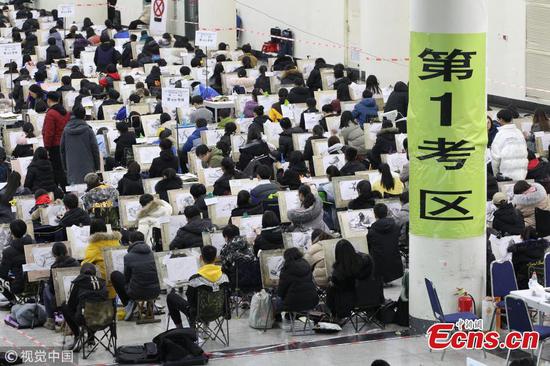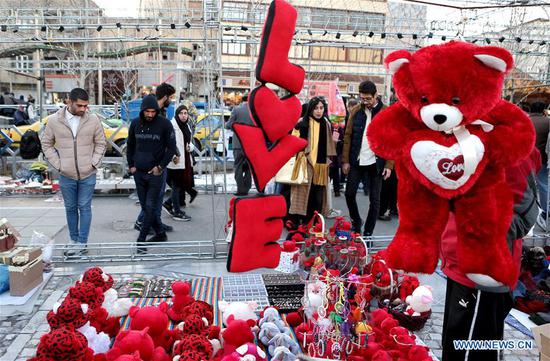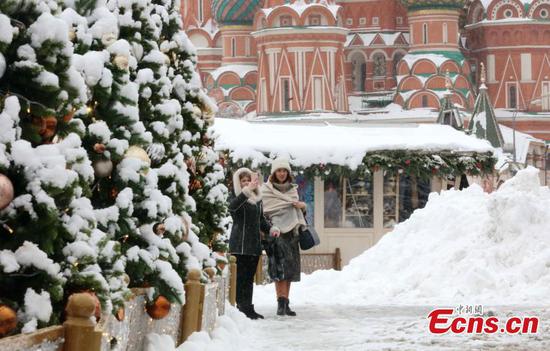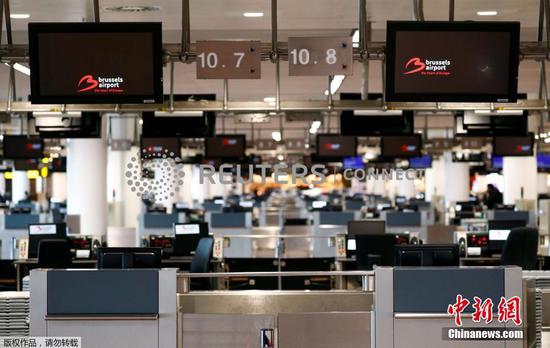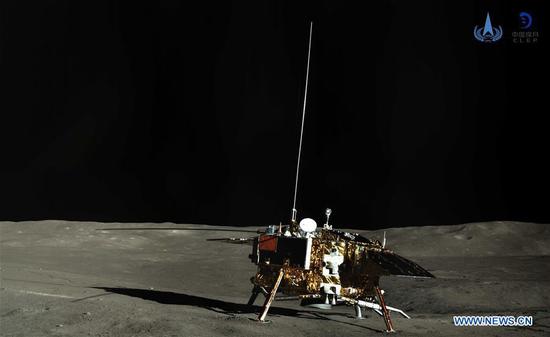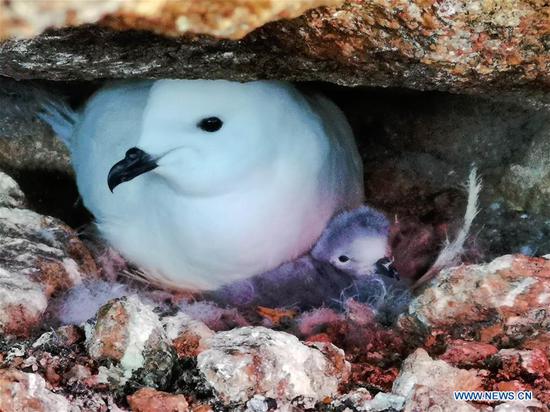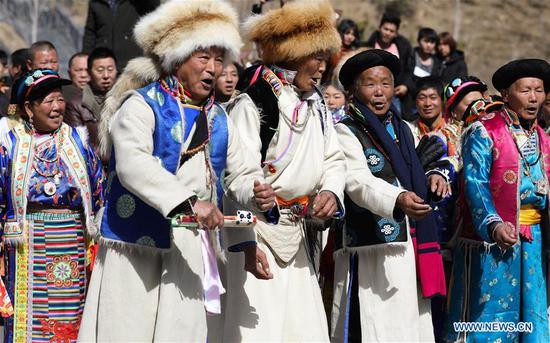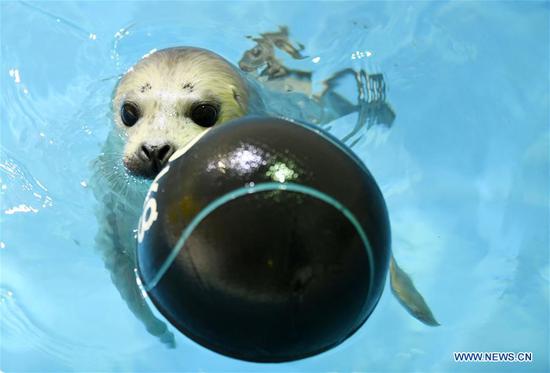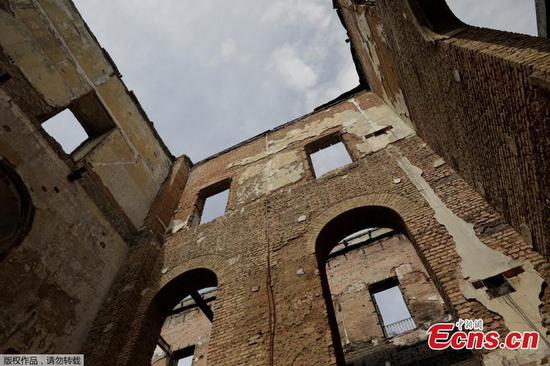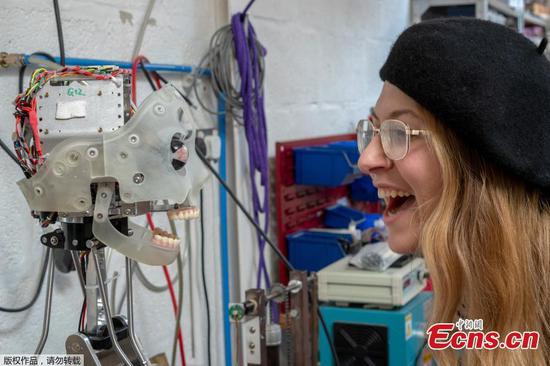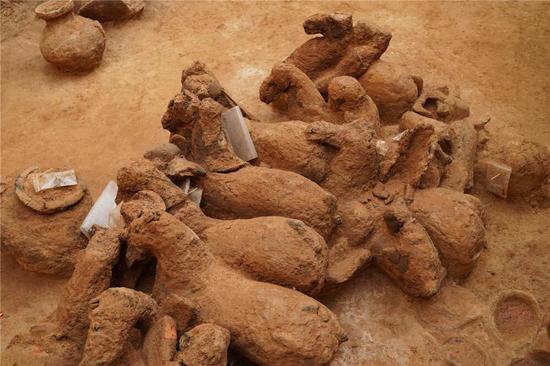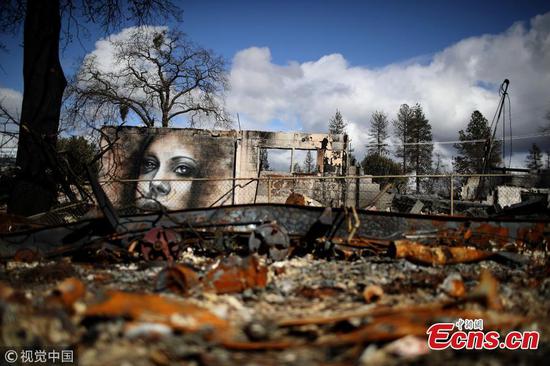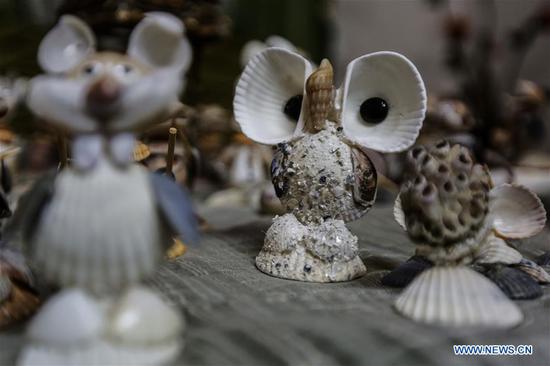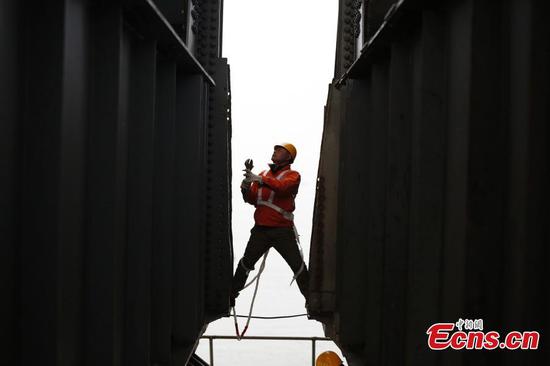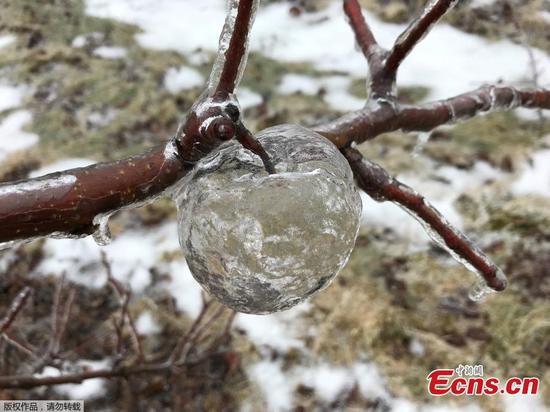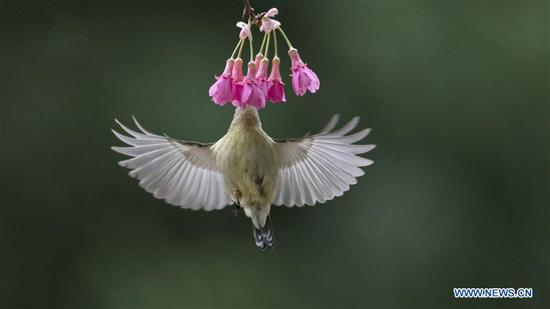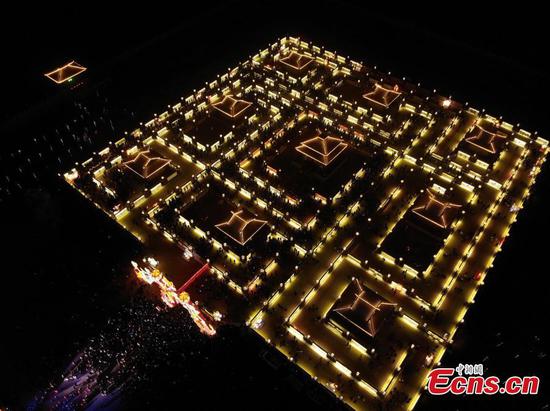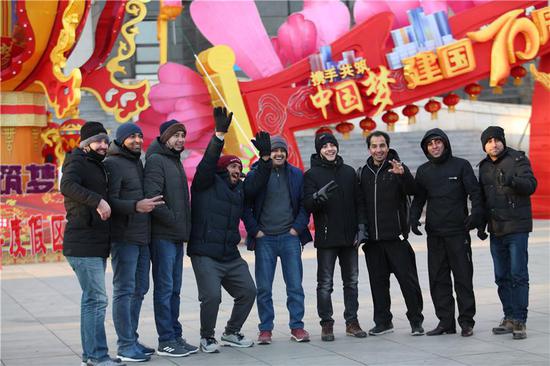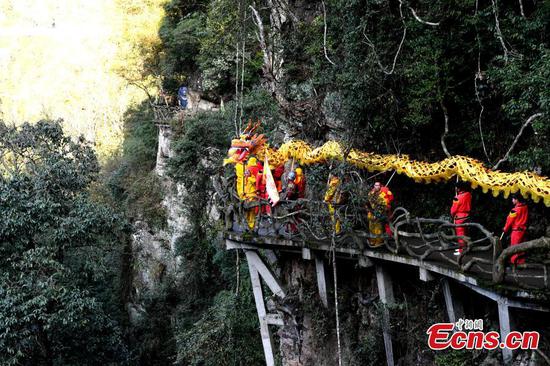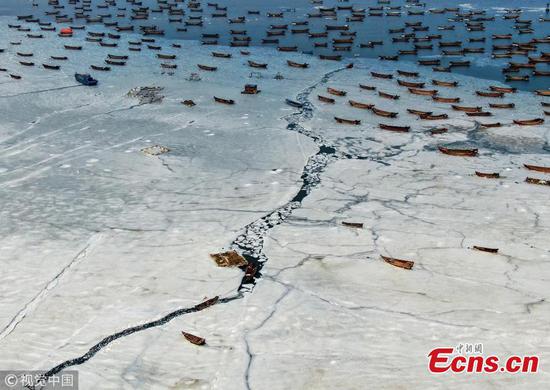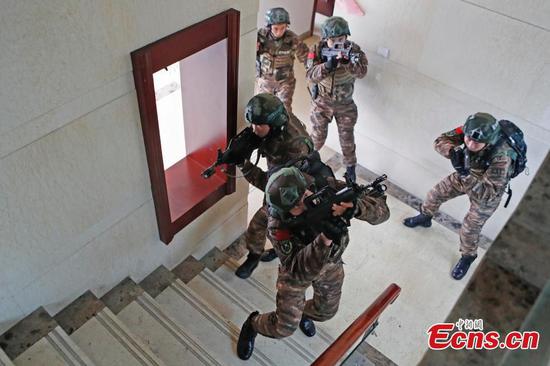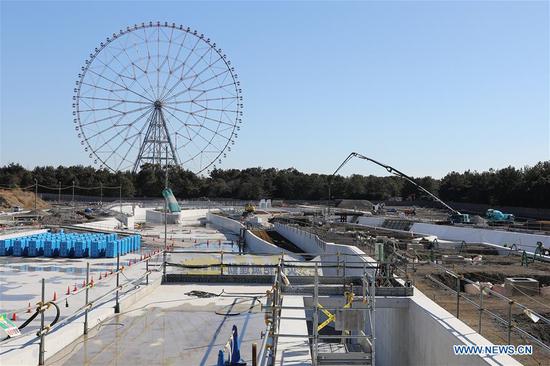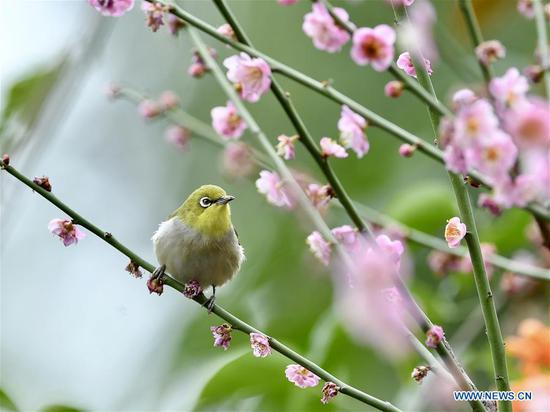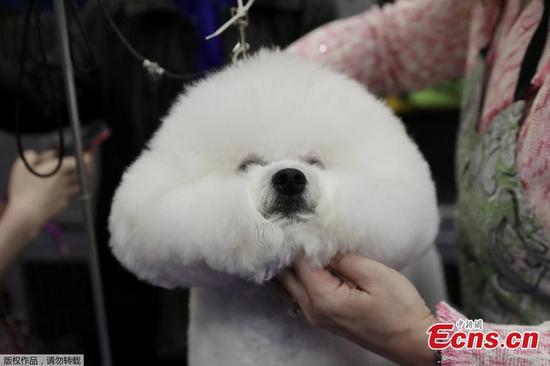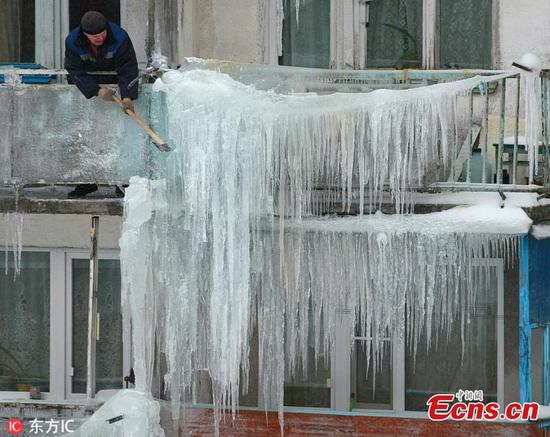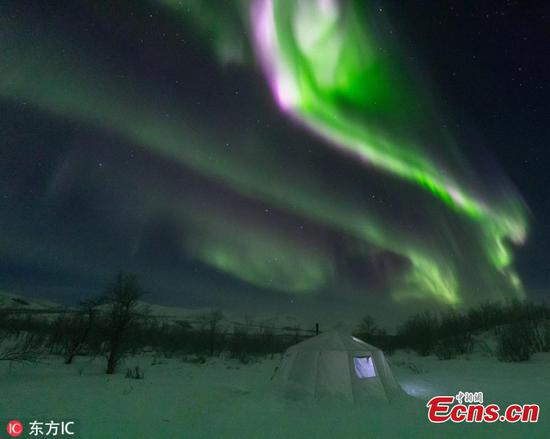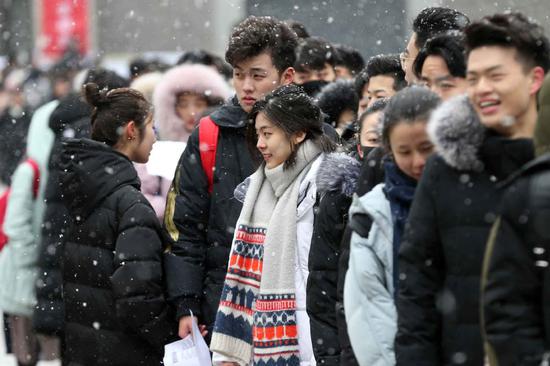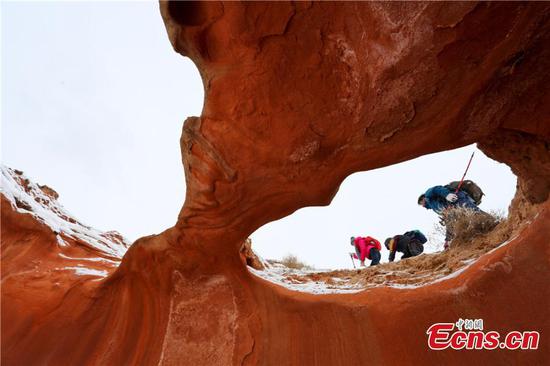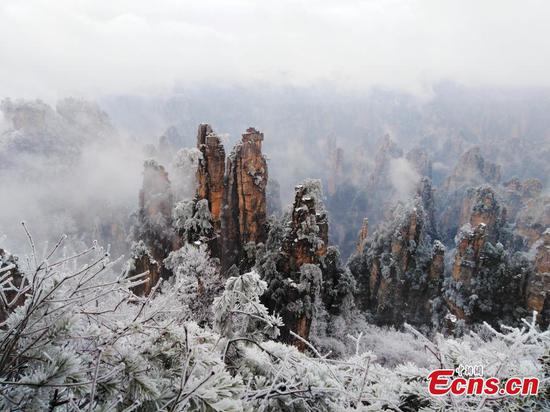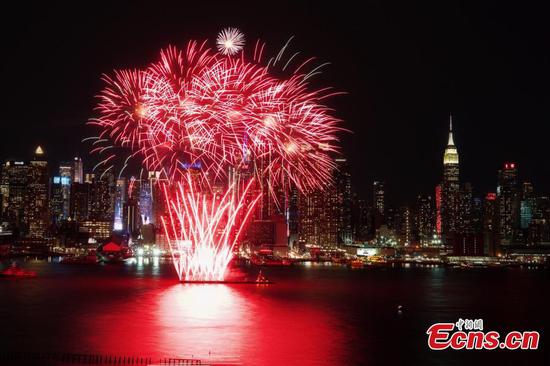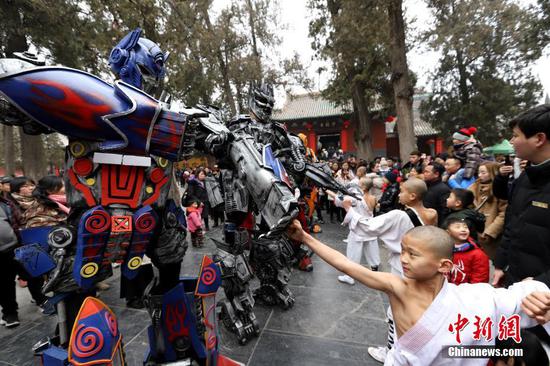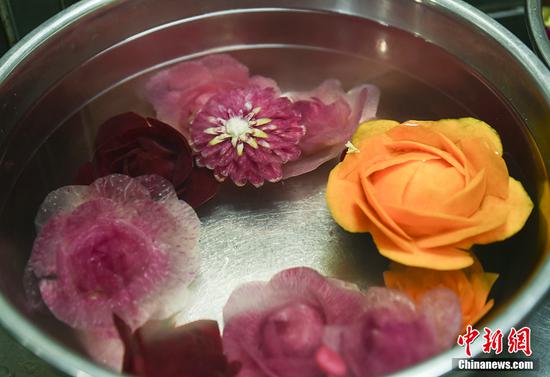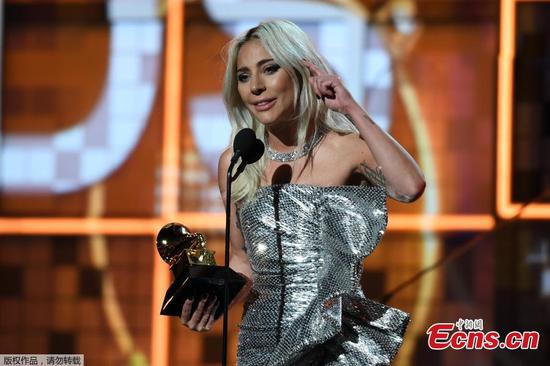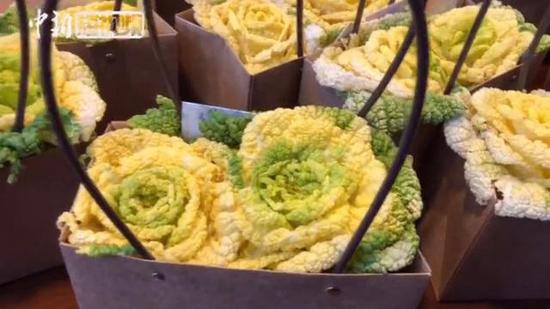Spring Festival's traditional focus on family seemed to take on a more global significance this year as China's ever-increasing importance in the Olympic family was celebrated at home and abroad.
With the 2022 Winter Games fast approaching, Chinese participation in ice and snow sports stood out as highlight of the Lunar New Year holiday as the country accelerates preparations for the gala event in Beijing and co-host Zhangjiakou in Hebei province.
Despite much colder conditions than in recent winters, Zhangjiakou's Chongli district, where most of the snow sports will be staged in 2022, welcomed a record 174,946 visitors from Feb 4-10, up nine percent from last year.
That equated to a 157 million yuan ($23 million) revenue bonanza, the district government revealed on Tuesday.
As the most recently developed of the area's seven major resorts, Thaiwoo Ski Town averaged around 8,000 visitors a day, almost double last year's numbers, while the seven resorts earned over 58 million yuan in tickets sales, training fees and gear rental.
"It's critical for the Games to leave a positive impact on the local economy and we have seen the benefits already," said Li Hong, a vice-mayor of Zhangjiakou.
Already a busy ski destination before Beijing won the bid in 2015, Chongli will host six events - snowboarding, freestyle skiing, ski jumping, cross-country skiing, biathlon and Nordic combined - while Beijing downtown and its Yanqing district will stage all the ice sports and remainder of the snow disciplines.
On the global stage, Chinese athletes also did their part to whip up extra enthusiasm for the Games by winning medals at the FIS Freestyle Ski and Snowboarding World Championships in Utah.
Snowboarder Cai Xuetong claimed a silver medal in the women's halfpipe on Saturday, joining Doriane Vidal of France and Australian Holly Crawford to become the third woman in history to win medals at three consecutive worlds.
Female freestyle skier Xu Mengtao made her mark as well by bagging bronze in aerials on Feb 7 to become the only athlete - male or female - to finish on the podium at every worlds over the past decade.
"From 2009 to 2019, from a teenager to a veteran, I am so proud of myself that I am still standing on the podium to chase my dream. There is no better way to celebrate the new year," said Xu, a 28-year-old Liaoning native.
On Feb 4, Lunar New Year's Eve, the Olympic Museum in Lausanne, Switzerland underwent a Chinese transformation, with Spring Festival-themed decore on its front gate and red lanterns in its atrium.
The "China Red Light-on 2022" exhibition, part of the "Cheer for the Olympics" series, was staged at the museum as part of the International Olympic Committee's celebrations for the Lunar New Year.
IOC president Thomas Bach was on hand to extend greetings to the Chinese people.
"First of all, a happy new year to all the Chinese people," he said in his opening speech. "This year will give us the opportunity to celebrate the Olympic spirit even more together. This is why we opened here with this exhibition on Chinese art and culture and the Olympic values."
Joined by Yu Zaiqing, an IOC vicepresident from China, Bach lit red lanterns to illuminate the Olympic rings.
On display were dozens of paintings by Chinese artist Cui Jingzhe and an ink painting titled 'Olympic Spring' co-created by Cui's famous compatriots He Jialin, Wei Xiaorong, Chen Ping and Wang Ping.
Bach said the exhibition evoked the spirit of IOC founder Pierre de Coubertin, adding that "the Olympic Movement comprises sport and culture as its two founding pillars".
The event was also attended by museum director Francis Gabet, and representatives from the Beijing 2022 organizing committee's culture and ceremonies department.









